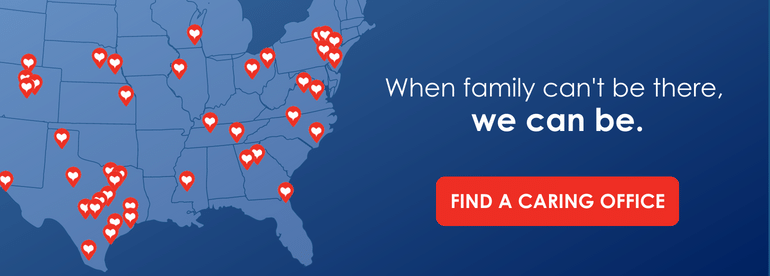As we age, our nutritional needs undergo significant changes. A well-balanced and nutrient-dense diet becomes crucial for maintaining optimal health and preventing age-related illnesses.
Seniors face unique challenges related to nutrition, including changes in metabolism, reduced appetite, and potential health issues. Discover specific nutritional needs of seniors and strategies for ensuring they receive the essential nutrients for a healthy life.
Nutrition and Aging
Aging results in various physiological changes that impact nutritional requirements. Metabolism tends to slow down, muscle mass decreases, and the absorption of certain nutrients may become less efficient. Seniors also tend to be less physically active, impacting their diet. Additionally, chronic illnesses, medications, and diminished taste and smell senses can affect seniors' appetite and food choices.
These changes can cause seniors to eat less or have little interest in food. They may skip meals more frequently, which could prevent them from getting the nutrition that they need. But getting proper nutrients is key to staying healthy, managing weight, and reducing risk of health complications.
RELATED CONTENT: Superfoods for Seniors
Key Nutrients for Older Adults
Protein
Protein is essential for maintaining muscle mass, bone health, and overall body function. Seniors are often at risk of protein deficiency, which can lead to muscle wasting and a weakened immune system. Including lean meats, poultry, fish, eggs, dairy products, and plant-based protein sources like legumes and nuts in their diet is crucial.
Calcium & Vitamin D
Maintaining strong bones becomes increasingly important as we age to prevent conditions like osteoporosis. Calcium and vitamin D work together to support bone health. Good sources of calcium include dairy products, leafy green vegetables, and fortified foods. Sunlight and supplements are key sources of vitamin D.
Fiber
Digestive health is a common concern for seniors. A diet rich in fiber can help alleviate issues such as constipation. Fiber slows the absorption rate of sugar into the bloodstream, keeping blood glucose levels stable.
- Soluble fiber helps slow digestion so the body can better absorb vital nutrients from foods.
- Insoluble fiber helps you stay regular by passing food through the digestive system.
Whole grains, fruits, vegetables, legumes, and nuts are excellent sources of dietary fiber that contribute to a healthy digestive system.
Omega-3 Fatty Acids
Omega-3 fatty acids play a crucial role in heart health and cognitive function. By keeping blood vessels flexible, Omega-3 fats also lower the risk for a heart attack or stroke. Fatty fish like salmon, mackerel, and trout, as well as flaxseeds and walnuts, are excellent sources of these essential fats.
Potassium
Potassium is an important mineral that functions as an electrolyte. It helps regulate nerve signals, fluid balance, and muscle contractions. Low potassium levels cause muscles to feel weak, cramp, twitch, or even become paralyzed. Low potassium could also lead to heart arrhythmia. Leafy greens, beans, nuts, and bananas are all great sources of potassium.
Folic Acid
Folic acid helps your body produce and maintain new cells. It may prevent changes to cells that may lead to cancer. A deficiency in folate intake can lead to blood disorders. Some research suggests that folic acid can also help with cognitive function in seniors. Vegetables and organ meats are very high in folic acid.
Vitamin C
Vitamin C helps increase iron absorption, aids in wound healing, and helps the body to fight infections. A glass of orange juice, 1/2 a grapefruit, or 2 mandarin oranges provide the recommended daily allowance.
Iron
Iron is a mineral that helps the body distribute oxygen throughout the body. It also helps produce some hormones. A lack of iron can cause you to feel dizzy or lightheaded. It could even give you shortness of breath.
Low iron levels can occur in seniors who live alone and don't eat hot prepared hot meals. Red meat is an excellent source of iron. So are dark green leafy vegetables, whole-grains, beans, lentils, and baked potatoes.
Hydration
In addition to getting the right nutrients, seniors should also be properly hydrated. Dehydration is a common issue among seniors and can lead to various health problems, including urinary tract infections and kidney stones. Encourage loved ones to drink water and other hydrating fluids, such as herbal teas and broths.
RELATED CONTENT: 5 Surprising Ways to Prevent Dehydration in Seniors
Understanding the nutritional needs of seniors is essential for promoting healthy aging and improving overall quality of life. Of course, talk to your doctor about specific nutritional recommendations as certain health conditions require different levels of nutrients. By emphasizing a well-rounded diet rich, we can empower seniors to enjoy a vibrant and fulfilling lifestyle.
If your loved one needs assistance planning and preparing nutritious meals, our professional caregivers can help. We are happy to lend a hand in the kitchen or even run to the grocery store. Reach out to your local Caring team today to learn more.


